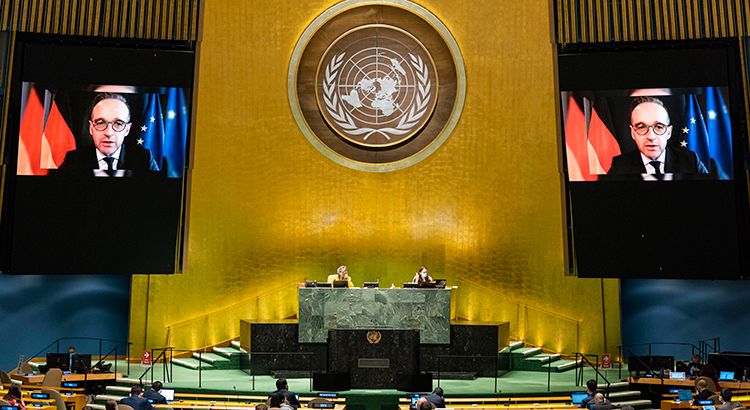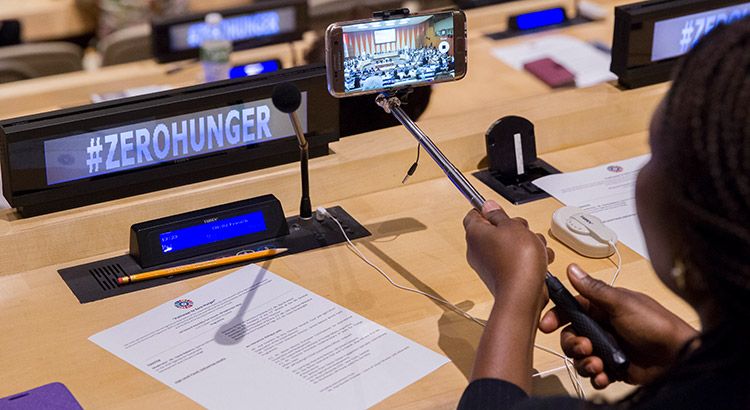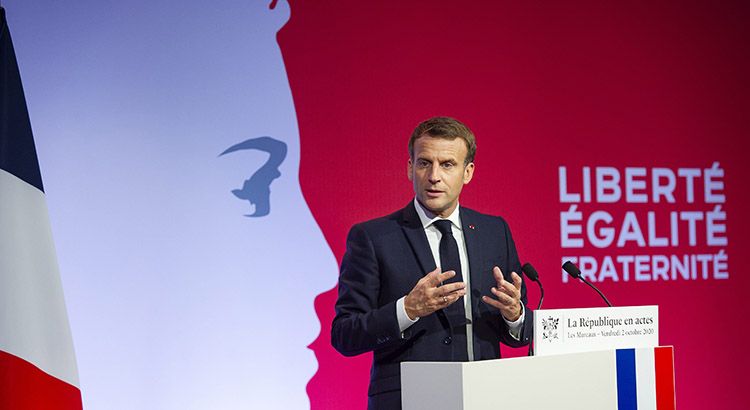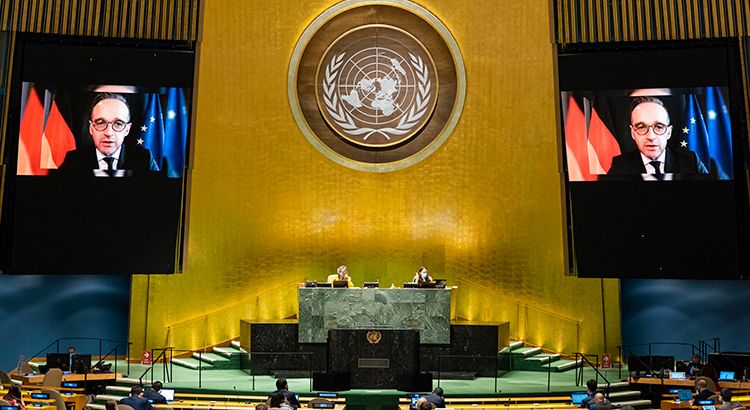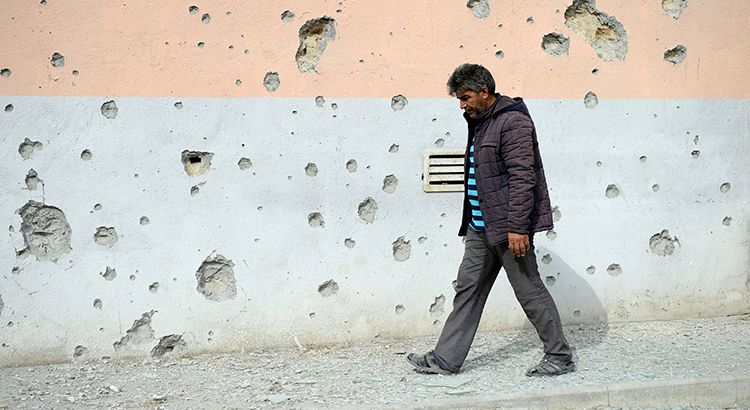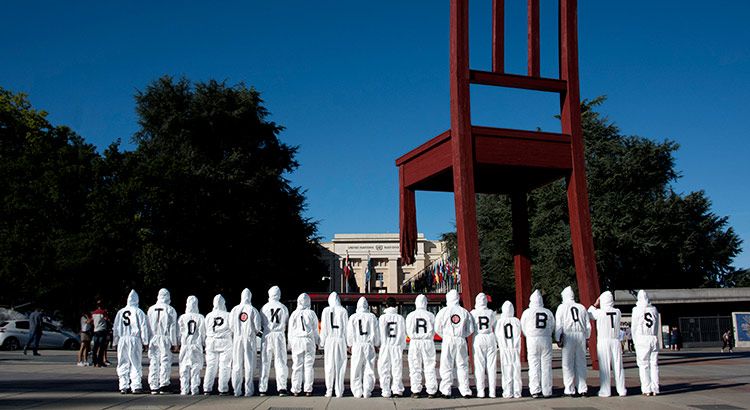Jahr: 2020
The purpose of any German strategy of multilateralism must be to invest in the multilateral system and foster robust international organizations which strengthen the European Union’s Common Security and Defense Policy, and to prioritize the implementation of existing international regulations over the development of new sets of regulations.
Foodies of the World Unite: World Food Day Reminds us to Politicize Nutrition
16 October is World Food Day. This year, spotlights are guaranteed because the United Nations World Food Program just received the 2020 Nobel Peace Prize. Despite these high levels of attention on food, the political and economic structures driving global production and consumption habits remain in the dark. Food has become a heavily individualized aspect of life. But who likes to eat alone?
Macron’s plan for fighting Islamist radicalization – and what Germany and other European countries should and shouldn’t learn from it
On October 2nd French president Macron presented a five-point plan to address Islamist radicalization. The long awaited speech sparked debates in France and beyond. In Germany, some called it “historic” and a “wake-up call”, demanding a similar set of initiatives and central speech for the German debate. This is problematic for two reasons: first, while many measures in Macron’s plan are promising, others and the overall framing of the speech can prove counterproductive in terms of stigmatization and securitization. Second, the French centralist approach cannot and should not be transferred to the German federal and civil society-based system of preventing extremism.
Wer Multilateralismus will, muss auch sagen können, wo und wie
Eine deutsche Multilateralismus-Strategie sollte in das multilaterale System investieren und starke internationale Organisationen fördern, die Sicherheits- und Verteidigungspolitik der Europäischen Union stärken und der Umsetzung bestehender internationaler Regeln Vorrang einräumen gegenüber der Entwicklung neuen Regelwerke.
Mehr als die Summe der einzelnen Teile: Zum ersten Bericht zur Förderung der Rechtsstaatlichkeit in der EU
Der erste Bericht zur Rechtsstaatlichkeit in der Europäischen Union (EU) bietet eine notwendige Synthese der Situation der Rechtsstaatlichkeit in den einzelnen Mitgliedsstaaten. Auch wenn konkrete Maßnahmen zur Beseitigung von Defiziten nicht benannt werden, setzt die EU hier einen wichtigen Impuls für einen politischen Prozess, der den Wert von Demokratie und Grundrechten unterstreicht.
Bergkarabach – vom kalten Frieden zum heißen Krieg
Nun ist es also passiert, was die nicht eben zahlreichen Beobachter des Konflikts um Bergkarabach seit Jahren prognostiziert haben: Ohne einen ernsthaften Verhandlungsprozess wird es früher oder später zu einem neuen Krieg zwischen Armenien und Aserbaidschan kommen. Dass dieser lange Jahre „eingefrorene“ Konflikt dauerhaft ruhiggestellt werden könnte, war und ist eine große Selbsttäuschung – der Armenier, aber auch der drei Vorsitzenden der sogenannten Minsker OSZE-Verhandlungsgruppe Russland, USA und Frankreich.
Digital diplomacy: The debate on lethal autonomous weapons systems in Geneva continues under unprecedented circumstances
Despite the global Covid-19 pandemic, the debate on lethal autonomous weapons systems within the Group of Governmental Experts (GGE) at the UN Convention on Certain Conventional Weapons (CCW) in Geneva, which has been going on since 2014, took place last week. With only a handful of diplomats present, the meeting was held in a hybrid format. While the pandemic and its restrictions might have been a factor that hampered progress in the debate, it went along better than many had expected. However, there were hardly any new arguments in the debate and the prospects of a regulation of LAWS did not really increase. Now is the time to make sure the deliberations build more substance because it should be in every state’s interest to avoid a technological arms race.
Cling Together, Swing Together? Arguments for Withdrawing from Nuclear Sharing
Plans to procure a replacement for the Tornado fighter jet have sparked a long-overdue debate about NATO’s nuclear sharing arrangements and the nuclear weapons stationed in Germany. The weapons cannot really be deployed for military purposes and they are ill-suited to hold the crumbling Alliance together. In fact, in times of smoldering hegemonial conflicts, they are a potential target in the event of nuclear escalation. Thus, in its own security interests and to augment its room for maneuver when it comes to foreign and security policy in the tradition of non-proliferation, Germany should pull out of the nuclear sharing program.
Hate speech in the context of mass atrocity crimes: How social media platforms help and hinder international criminal investigations
The May 2020 arrest of Félicien Kabuga brought an end to a manhunt spanning 26 years and two continents. The capture of the elusive alleged financier of the infamous RTLM hate speech radio station shows the importance of documenting hate speech for court proceedings if and when fugitives are eventually arrested. Today, extremist hate and atrocity speech in the context of genocide and war crimes takes place and is spread online. However, social media platforms have been slow to respond to and document it, and to cooperate with international authorities in doing so.
Der Fall Nawalny und die westliche Reaktion – keine Auswege aus der Destruktionsspirale?
Obwohl noch immer viele Fragen offen bleiben, wer genau und aus welchem Grund Alexey Nawalny vergiftet hat, wird bereits deutlich, dass der Fall Nawalny gravierende Folgen für die russisch-westlichen Beziehungen haben wird. Neue Sanktionen oder der Baustopp der Nordstream-II Pipeline – der Westen verfügt in seiner möglichen Gegenreaktion über eine Vielzahl von Optionen. Doch stellt sich durchaus die Frage, ob das System Putins sich überhaupt durch Druck vom Außen noch beeinflussen lässt oder dadurch nur noch verhärtet wird. Diese neue Eskalationsstufe im Konflikt mit Russland kann unbeabsichtigte Konsequenzen nach sich ziehen, was den Westen jedoch nicht davon abhalten sollte, klar und entschieden zu reagieren.
